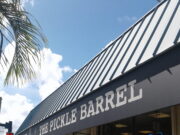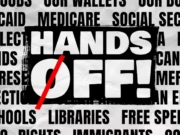
Deerfield-News.com-Deerfield Beach, Fl-Good lawyering for CNN and Jim Acosta, in order for the Federal Judge to grant a TRO. A “Temporary Restraining Order’ issued by a Federal Court is no small thing, courts do not hand these types of injunctive relief out willy-nilly. CNN apparently demonstrated 4 things required with the two most important “Irreparable Harm” and a “Likelihood of Success on The Merits” at least in that part of the case ruled on.
Source www.law.cornell.edu/
Temporary Injunctions:
Unlike TRO, temporary injunctions are slightly more enduring in effect than TRO, and requires a court proceeding and usually requires a notice to the opposing party.
In determining whether to grant or deny a preliminary injunctive relief, the courts generally look to several of the factors including: (1) the plaintiff’s likelihood of prevailing on the merits;(2) a showing of irreparable injury to plaintiff if relief is not granted; (3) the threatened injury to the movant is demonstrated to outweigh whatever damage the proposed injunction may cause the opposing party; and (4) the balancing of equities.
Other circuits have alternatively looked to a different criteria, consisting of a showing of (1) probable success and the possibility of irreparable injury; or (2) serious questions on the merits and a balance of hardships. See e.g., W.W. Williams Co. v. Google, Inc., 2013 WL 3812079 (S.D. Ohio 2013).
Permanent Injunctions:
There is a balancing test that courts typically employ in determining whether to issue an injunction. To seek a permanent injunction, the plaintiff must pass the four-step test: (1) that the plaintiff has suffered an irreparable injury; (2) that remedies available at law, such as monetary damages, are inadequate to compensate for the injury; (3) that the remedy in equity is warranted upon consideration of the balance of hardships between the plaintiff and defendant; and (4) that the permanent injunction being sought would not hurt public interest. See, e.g., Weinberger v. Romero—Barcelo, 456 U.S. 305, 311–313, 102 S.Ct. 1798, 72 L.Ed.2d 91 (1982); Amoco Production Co. v. Gambell, 480 U.S. 531, 542, 107 S.Ct. 1396, 94 L.Ed.2d 542 (1987). The decision to grant or deny permanent injunctive relief is an act of equitable discretion by the district court, reviewable on appeal for abuse of discretion. See eBay Inc. v. MercExchange, L.L.C., 547 U.S. 388, 391, 126 S. Ct. 1837, 1839, 164 L. Ed. 2d 641 (2006)
In balancing the damages to the plaintiff and the defendant and the public interest, the courts balance the relative harm and benefit to both the defendant and the plaintiff if the injunction is granted. A leading decision, Boomer v. Atlantic Cement Co., ruled against a permanent injunction against the cement company in a nuisance claim by the homeowners in the neighborhood. In reaching the decision, the court factored in the factory’s apparent inability to develop improved abatement methods, and the defendant’s 45 million dollar capital investment in the factory, both of which are factors by which the defendant would be hurt significantly hurt by the injunction. See 26 N.Y.2d 219 (2nd Cir., 1970).
Also, in some jurisdictions, courts take into consideration good faith of the parties. If it seems that the defendant is acting in good faith, by doing all that it can to abate the nuisance, the court may reflect those efforts in the terms of its order. In contrast, if the court believes the defendant is acting in bad faith, the court will show little sympathy and rule in favor of permanent injunction. See, e.g., Penland v. Redwood Sanitary Sewer Serv. Dist., 965 P.2d 433, 440 (Or. Ct. App.1998); Holubec v. Brandenburger, 58 S.W.3d 201, 213-14 (Tex. App. 2001), rev’d on other grounds, 111 S.W.3d 32 (Tex. 2003).
Last Edited by Jonathan Kim, June 2017.
menu of sources
Federal Material
An injunction is a court order requiring a person to do or cease doing a specific action. There are three types of injunctions: Permanent Injunctions,Temporary restraining orders and preliminary injunctions. Temporary Retraining Orders (TRO) and Preliminary injunctions are in nature. They can be issued by the judge early in a lawsuit to stop the defendant from continuing his or her allegedly harmful actions. Choosing whether to grant temporary injunctive relief is up to the discretion of the court. Permanent injunctions are issued as a final judgment in a case, where monetary damages will not suffice. Failure to comply with an injunction may result in being held in contempt of court, which in turn may result in either criminal or civil liability. See, e.g., Roe v. Wade 410 US 113 (1973).
Injunctions: An Overview
An injunction is a court order requiring an individual to do or omit doing a specific action. It is an extraordinary remedy that courts utilize in special cases to alter or maintain the status quo, depending on the circumstances, particularly where the defendant-party must stop its course of action to prevent possible injustice and irreparable harm to the plaintiff. Injunctive relief is a discretionary power of the court, in which the court balances the irreparability of harm and inadequacy of damages if an injunction were not granted against the damages that would result if an injunction was granted.
An individual who has been given adequate notice of an injunction but fails to follow the court’s orders may be punished for contempt of court.
An injunction is an equity remedy and as such is available only in cases of in-personam jurisdiction (not in in-rem proceedings). Rule 65 of the Federal Rules of Civil Procedure explains what temporary injuctions TRO are, and establishes the rules regarding them. Rule 65, however, only addresses the collateral requirements of notice, form, and scope of the temporary injunctions, but does not prescribe the standards for issuance of the injunctions.




































